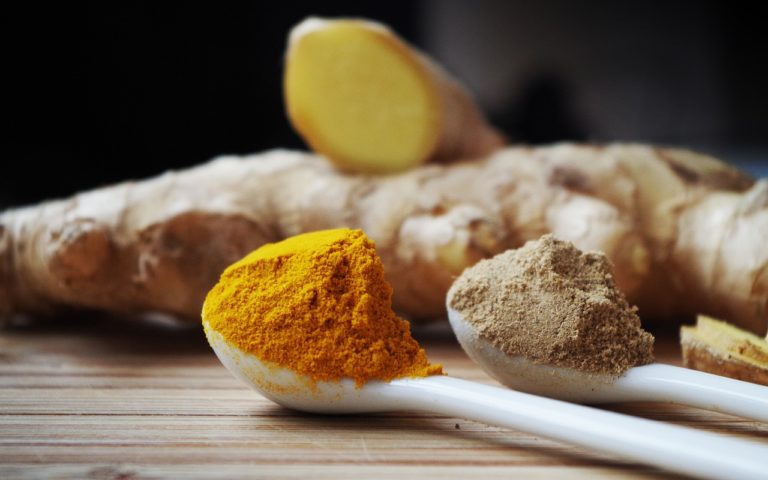Superfoods



Nature’s Super Foods: Edible Flowers For Your Good Health
It’s no secret that flowers are incredibly versatile plants. They’re beautiful, can be used as ingredients in lotions and perfumes, work well in art, can be used for colors and pigments, and so much more.
However, did you know that plenty of flowers are edible as well?
That’s right—edible flowers and some weeds are a great way to get an extra kick of Vitamins A and C in your diet and can be grown in your own backyard.
The petals and greens of some flowers and weeds can have wonderful effects on your health, and generations of people have been eating these edible treats for years. It is important to note that not all flowers are edible; in fact, some can be poisonous if consumed, so knowing which flowers you can eat, and which you should not can definitely come in handy.
The following is a list of edible flowers, their benefits, and some reasons why you should add them to your diet.
Edible Flowers List
Different flowers, weeds, and greens have different health benefits. Some groups are rich in vitamins and minerals while others aid specific bodily systems such as the digestive tract, cardiovascular systems, and others. The following are edible flowers grouped by their health benefits:
Edible Flowers High In Vitamins and Minerals:
Digestive Aids:
Stress and Sleep Aids:
Vibrant California poppies, soft chamomile blooms, and lavender flowers are well-known sleep and stress aids. They come in oils, teas, lotions, drops, medications, and even bath soaps. They are a delicious and natural way to unwind at the end of the long day and promise a restful night’s sleep.
Detox Aids:
Pain Relievers:
Antibiotic and Anti-inflammatory Aids:
Look for Recipes
Once your garden is in bloom, you can begin exploring natural recipes for your edible flowers, weeds, and greens.
Salads, teas, baked goods, jellies and jams, breads, stir-fry, roasts and a number of other dishes can include these delicious and natural additions, and your family will enjoy the health benefits that come along with them.
These blooms and more are a wonderful way to get to nature and brighten up your diet. There are some flowers such as apple, pea, lemon, orange, begonias, tulips, and more that are perfect just for flavoring, so begin your garden and see what you can really do!
Consume Responsibly
The best place to buy edible flowers is at your local farmers’ market. They will have a large selection and you can make sure they are organic and not sprayed with pesticides or other chemicals.
You can also check your grocery store’s produce section, not the floral section or order them online with websites that ship overnight for optimal freshness. You can even grow your own, just be sure to learn the proper method of food safety.
While turning to nature is a smart and effective way to get into your best health, you should keep in mind that many of these natural remedies are not always backed by doctors or even approved by the FDA.
Alternative health shops and websites may offer glowing reviews of these edible flowers and the natural remedies they offer but it is up to you to do thorough research before adding these to your diet.
Once you’ve ensured that the flowers, greens and weeds you want to consume are indeed safe, you can begin to use them to enhance the flavor of your food and your health.

7 Ways Turmeric Benefits Your Health
Turmeric is a commonly used spice that originates from the Curcuma plant. We most likely know it for its spiciness and use in dishes such as curry.
However, Turmeric has been extensively used within Chinese and Indian cultures, including as an anti-inflammatory. Turmeric is best consumed in its pure sense, rather than as a component of curry powder or other spices.
However, the Western world has been slow to notice the health benefits of turmeric, though turmeric can provide many health benefits, some of which are outlined below.
Anti-Inflammatory
Turmeric has long been used for its anti-inflammatory properties in Eastern cultures; this helps the body to fight infection and repair itself. It is the oil that the turmeric provides that has the scientifically proven anti-inflammatory capabilities.
Curcumin, the oil derived from turmeric, has been studied in numerous experiments, and has been shown to be equally as effective as typical anti-inflammatory drugs. The key difference is there are no side effects associated with curcumin oil. This is good news for those who suffer from joint conditions, such as arthritis, where inflammation plays a key role in exacerbating chronic pain.
Treatment for Inflammatory Bowel Disease
Inflammatory bowel diseases such as Crohn’s disease are common disorders that affect many people throughout the world and can be quite debilitating. Studies have investigated the effect of turmeric in mice who have such diseases.
Although the researchers are not entirely sure how it works, curcumin oil improved cell functions and reduced the symptoms. Certain symptoms such as mucosal ulceration were almost completely removed.
Indigestion and Heartburn Relief
Turmeric has also been shown to help with the common conditions of indigestion and heartburn. These are frequently experienced by individuals and can be incredibly frustrating and uncomfortable.
Turmeric stimulates the gallbladder and increases bile production; in Germany, turmeric is prescribed for such problems.
Heart disease
Studies have shown that there is a protective effect of turmeric on the heart. Initial research shows that turmeric can help to reduce the build-up of plaque in the heart, a key contributor to heart attacks. Turmeric may help to prevent oxidized cholesterol, which is what damages blood vessels. Damaged blood vessels are a critical factor in many heart diseases, such as health attacks, strokes, and atherosclerosis.
Delays diabetes
Research has shown that turmeric can actually delay the onset of diabetes. In a study, participants were tracked over a period of time and given either a placebo or curcumin tablets.
At the end of the study, not one participant who had taken the curcumin had developed diabetes. It is argued this finding is due to the anti-inflammatory and antioxidant properties.
Cancer prevention
Turmeric has been shown to have important antioxidant properties, which may help to protect cells against cancer, particularly in cells in the colon. Turmeric can help to protect vulnerable cells against free radicals, which can be harmful to the body.
Moreover, turmeric can help the body to expel mutated cells that may have developed cancer already. However, research is still working out how turmeric can help with cancer prevention.
Lowers cholesterol
High cholesterol is a common disorder and has been linked to many different, some serious, disorders.
Initial research shows that the oil in turmeric, curcumin oil, can help to lower cholesterol levels. It works on the liver and encourages it to produce more receptors that produce lower cholesterol.
Uses In Cooking
Pre-cautions
Everyone should seek medical advice before adding extra turmeric to their diet and sometimes it may actually have negative effects for some people, for example, its ability to slow blood clotting could be dangerous for anyone taking anticoagulant medication. If in doubt, speak to your medical professional.